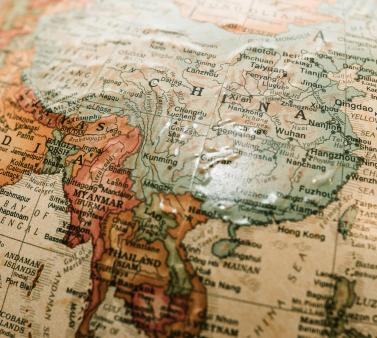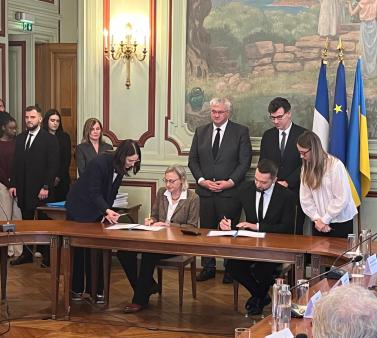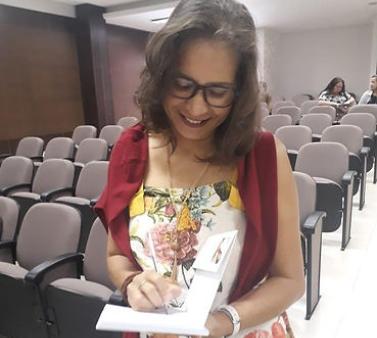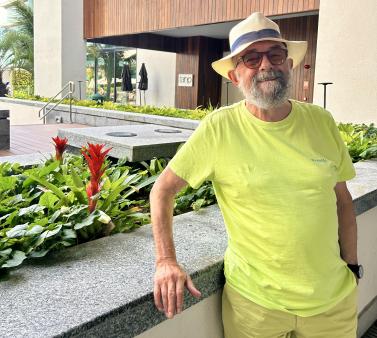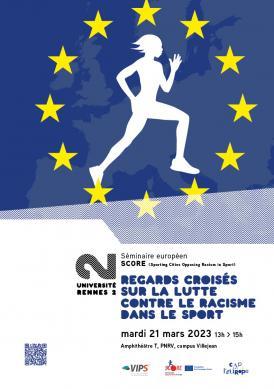
Could you please tell me a bit about the project SCORE and its objectives?
SCORE is an acronym for Sporting Cities Opposing Racism in Europe. It refers to a consortium of European partners (cities, non-profit organizations and universities) from six different countries (Spain, France, Ireland, Sweden, Greece and Austria). Funded by the European Commission for a period of 2 years (2022-2024), the project aims to fight against racism and discrimination in sports, with two main objectives. The first is to create a synergy at the local level, in the micro-spaces where exchanges and concrete actions take place on a daily basis. This is why public entities (municipal authorities as well as ministries) and NGOs in the field are involved in the project. The second objective is the promotion of sports as a tool for integration and prevention of racism, xenophobia and intolerance.
Please tell me about how the creation of this project came about?
The VIPS² research center / laboratory, of which I am a member, has been researching the topics of sports and discrimination and the relationship between the two for a long time. Discriminatory acts have always been present in sports, and at all levels. One such high-profile example of this was the social media harassment of three racially diverse England players who missed their penalty kicks in the Euro 2021 final. But this is clearly an issue that’s bigger than just this particular instance. The different European cities involved in this project are all concerned by important migratory phenomena. So they called on our expertise to carry out a comparative study of sports programs and experiences on a European scale in the fight against discrimination in sport. I am fortunate to have a very dynamic team of four research colleagues and three doctoral students from the laboratory who are accompanying me in this adventure, as well as the technical and project management support of the Europe Pole of the Research and Development Department (DRV) of Rennes 2 University, to whom I am particularly grateful.
How is the study unfolding?
The initial idea was to conduct collaborative research, so we involved the project partners from the outset, even those who are not scientists, in all stages of the research. This required a real work of translation: we did not have the same languages, nor the same contexts of migration, nor the same ways of conceiving diversity or integration, and there was a risk of cultural relativism. So our discussions and debates covered a lot of topics, which was very enriching! Together, we designed a questionnaire in 6 languages analyzing the program, the target audience and the organization carrying out the project on two main axes: the inclusion of minorities and the prevention of acts of racism and discrimination. We will extend this quantitative analysis with case studies.
How will your results be used?
Based on our results, the other partners will take over to share good practices and propose concrete tools at the local level, for example, training to raise awareness of the fight against discrimination through sports, to quickly develop local prevention strategies useful to all countries. The results of the survey will allow the creation of an interactive map of programs, to be shared at the European level on our website: https://scoreproject.net.
What do the first results of the study show?
We have just finished the data collection stage, so we have not yet analyzed everything. The results are preliminary, but we can draw some conclusions: first of all, there is a great variety of sporting activities offered, although soccer is the dominant one. This diversity can also be observed in the project leaders: most of them are cultural organizations and NGOs that include sports in their activities to support refugees and asylum seekers, but they are not necessarily sports bodies who carry out these initiatives. However, there are some nice surprises: this is the case of the Football Association of Ireland (FAI) with its intercultural program. The SCORE project is specifically aimed at federations, clubs and sports institutions to train and raise the awareness of local sports and educational players. The main results will be presented on March 21, 2023 during a free seminar offered in hybrid format.
Can you give me some examples of programs?
On March 21st, we will receive three testimonies of programs carried out by different political and other actors of the European countries of the consortium, which reflect their diversity. The first example is a German soccer club, Football Club ENTE BAGDAD, which welcomes refugees into its team and supports them financially and in learning the language. The second, Mondiali Antirazzisti, an Italian sports collective, offers online prevention training and organizes an annual event to fight against discrimination. And finally, the Council of Europe's "Combating Hate Speech in Sport" project, which coordinates several local European actions.
The 13 partners of the SCORE project include:
- 4 City Councils
- Getafe City Council, Madrid (Spain), consortium leader
- Bilbao City Council (Spain)
- Sabadell City Council (Spain)
- City Council of Ioannina (Greece)
- 4 Organizations and NGOs
- CIDALIA (Association specialized in diversity), Madrid (Spain)
- Asociación de Ciudades Interculturales (RECI), Spain
- Interkulturella Städer Sverige (Intercultural Cities of Sweden)
- Development Organisation for Refugees and Asylum Seekers (DORAS), Ireland
- 2 Spanish Ministries (Interior, Migration)
- OBERAXE (Observatorio Español del Racismo y la Xenofobia- Ministerio de Inclusión, Seguridad Social y Migraciones), Spain
- Oficina Nacional de Lucha Contra los Delitos de Odio (ONDOD) del Ministerio del Interior, Spain
- 3 Universities :
- OBITEN Observatorio de la Inmigración en Tenerife Fundación General de la Universidad de la Laguna (FGULL), Spain
- ETC (Europäische Trainings- und Forschungszentrum für Menschenrechte und Demokratie), University of Graz, Austria
- VIPS2 Laboratory, Rennes 2 University, France

